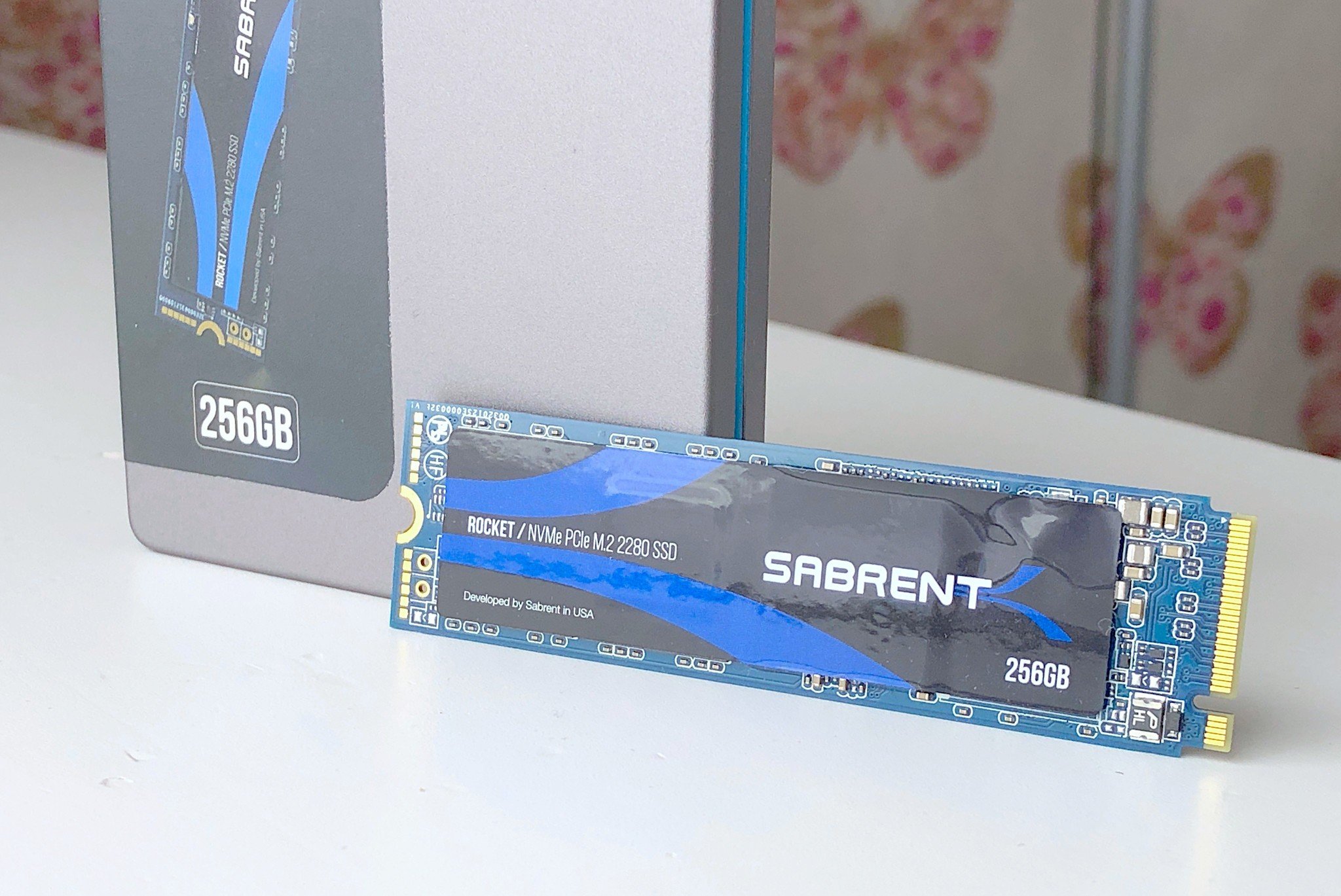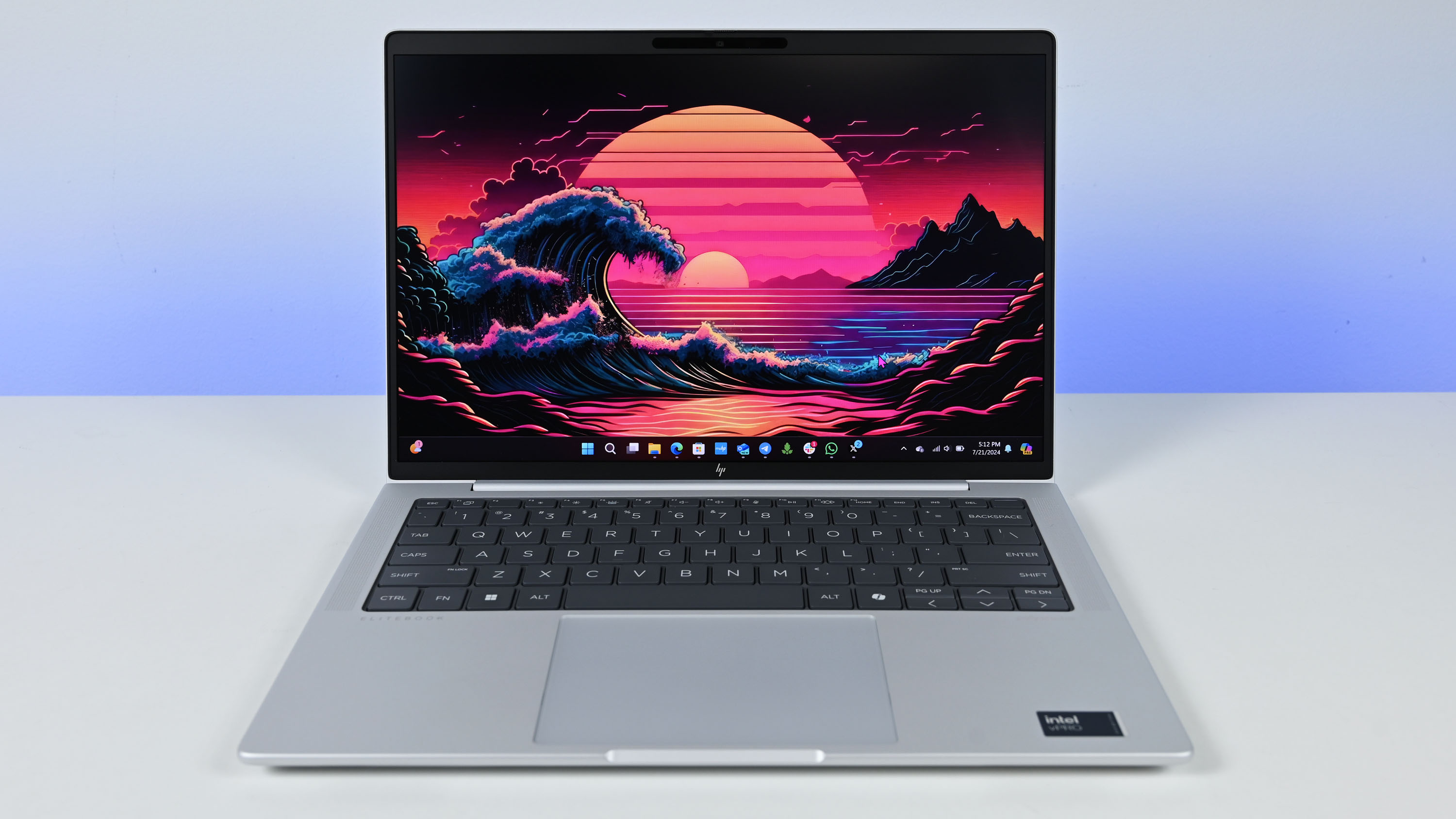SSD prices thankfully aren't as absurd as they once were, but it's just facts that you'll always be getting less storage for more money than over the old mechanical hard drives. The same applies, too, when looking at NVMe SSD storage compared to 2.5-inch SATA drives, but it's not all bad news.
You can still keep a tight budget and get a fast SSD for your PC, and that's exactly where the Sabrent Rocket comes in. With prices starting at just $40 for NVMe performance, even a super budget build can have great performing storage.
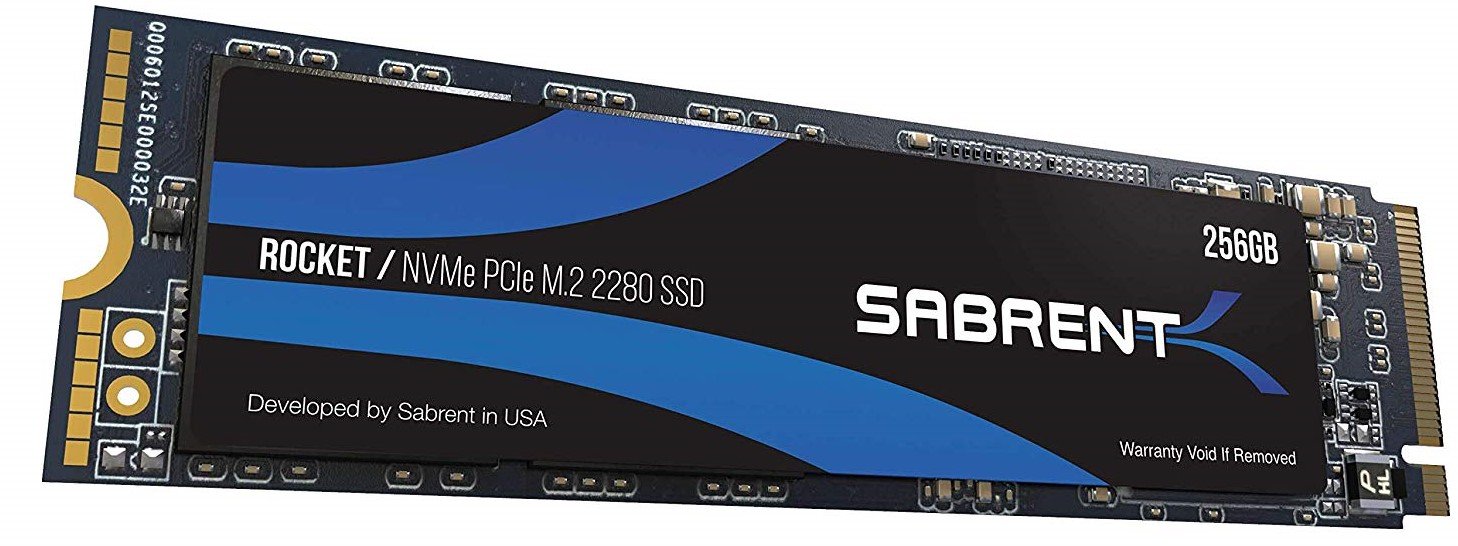
Bottom line: NVMe performance at a low price is hard to ignore, so long as you're not cloning an existing drive.
For
- Great read speeds
- Fantastic price
- Uses quality Toshiba NAND
- 5-year warranty
Against
- 256GB model hampered compared to others in range
- Not the best choice for cloning existing drives
Great performance on a budget
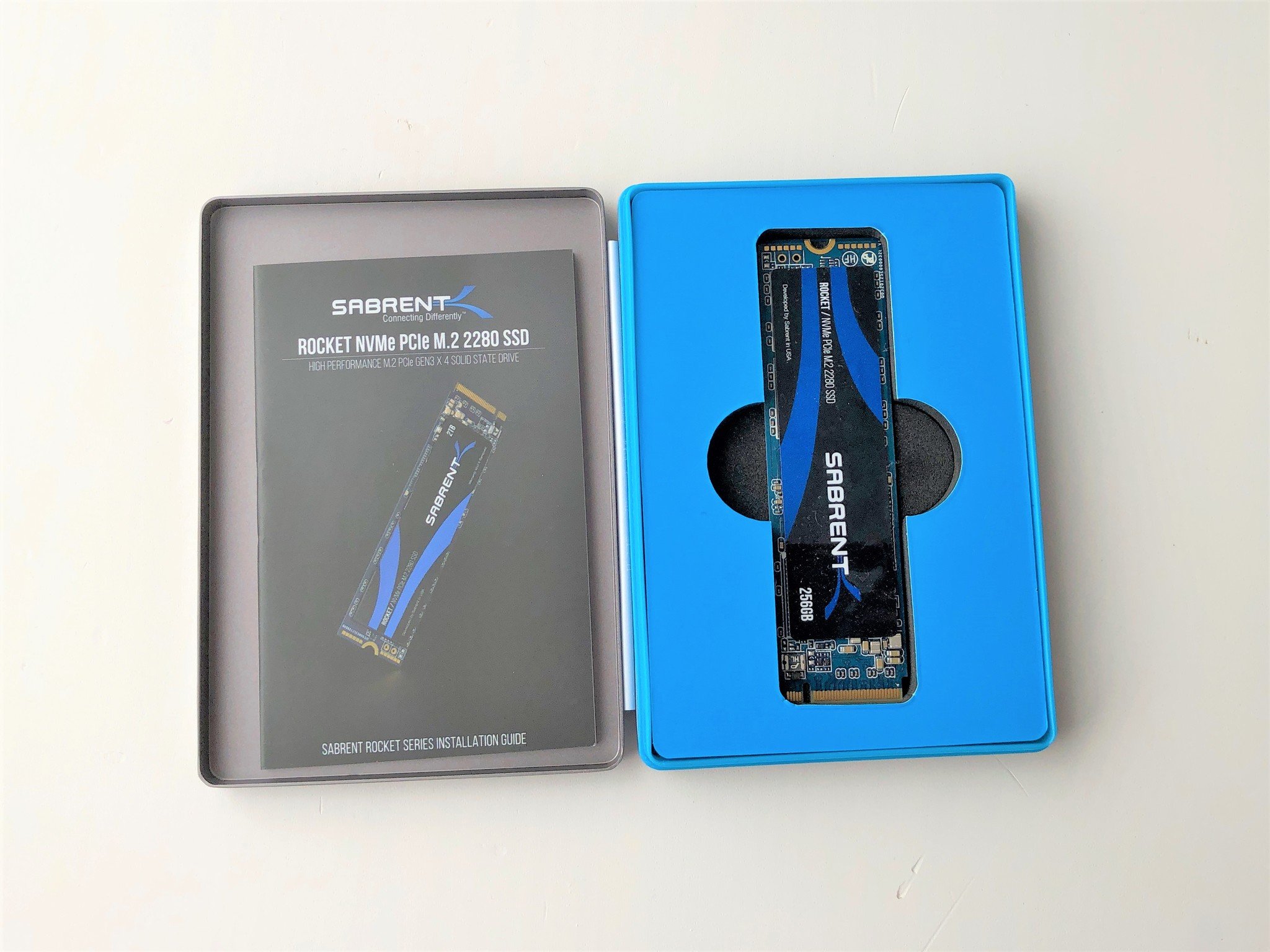
One of the main reasons to consider the Sabrent Rocket at all is the price. At the low end, the 256GB model I have here costs just $40. There's no other way of saying it, that is cheap for an NVMe SSD. But sometimes cheap can also start alarm bells ringing, so what do you actually get for your money?
Here's a quick rundown of key specs.
| Category | Spec |
|---|---|
| Capacity | 256GB, 512GB, 1TB, 2TB |
| Interface | PCIe Gen 3.0 x4, NVMe 1.3 |
| Sequential read | Up to 3,400 MB/s |
| Sequential write | Up to 3,000 MB/s |
| Random read | Up to 650,000 IOPS |
| Random write | Up to 640,000 IOPS |
| NAND | 3D BiCS3 |
| Controller | PS5012-E12 |
| Warranty | Five years |
It's important to point out that the best-listed specs belong to the 1TB model, which itself only sells for $110, less than half a comparably sized Samsung 970 EVO Plus, our most recommended SSD. The 256GB I have is limited to 3100/1050 MB/s sequential read and write speeds, with random read and write limited to 167,000 and 256,000 IOPS respectively.
All capacities come with fantastic read speeds, but the 1TB is the cream of the crop.
The Sabrent Rocket uses memory from Toshiba, which speaks to its quality, and the peace of mind of a five-year warranty is reassuring, especially when buying from a less familiar brand.
Is it a quality product, though, even when you're only paying $40? Absolutely, and that begins right from the packaging. The Rocket comes in a small metal box, and while you toss the packaging away, a good first impression is important. Sabrent boxes > Samsung boxes.
Specifically, I picked up the cheapest model because I was interested in just what you can get from the perspective of building a budget PC. And on the whole, I haven't been disappointed.
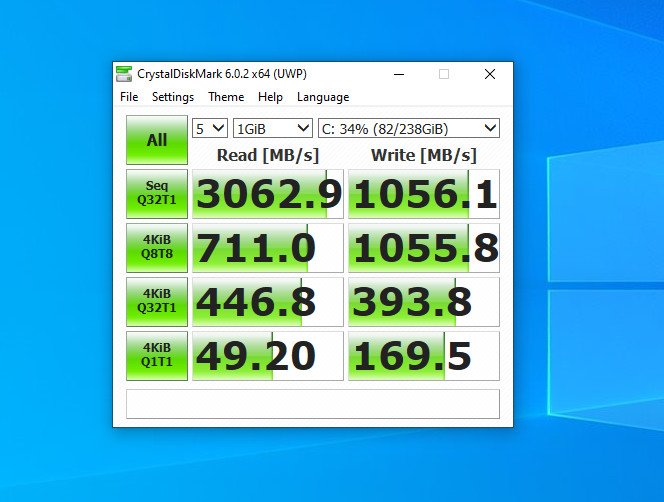
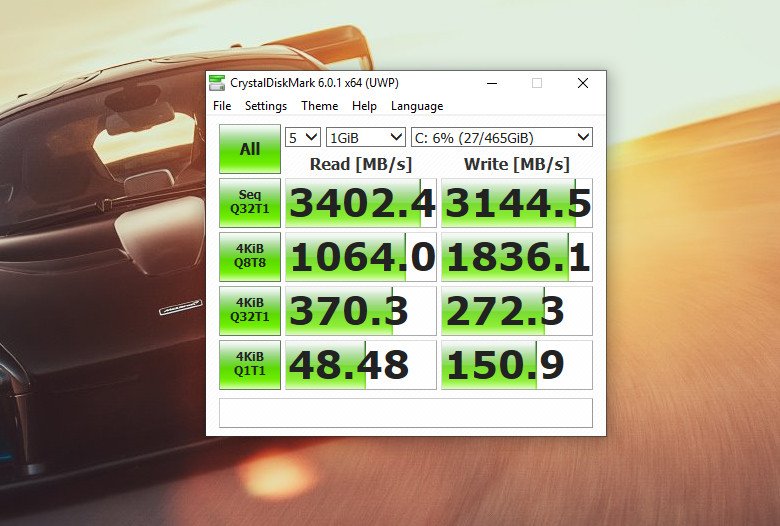
Running a couple of key benchmarks, it's clear to see in CrystalDiskMark that the Rocket does get to the manufacturers claimed numbers. You can also see how it compares to Samsung's 970 EVO Plus, which while much faster, especially on read, is also significantly more expensive.
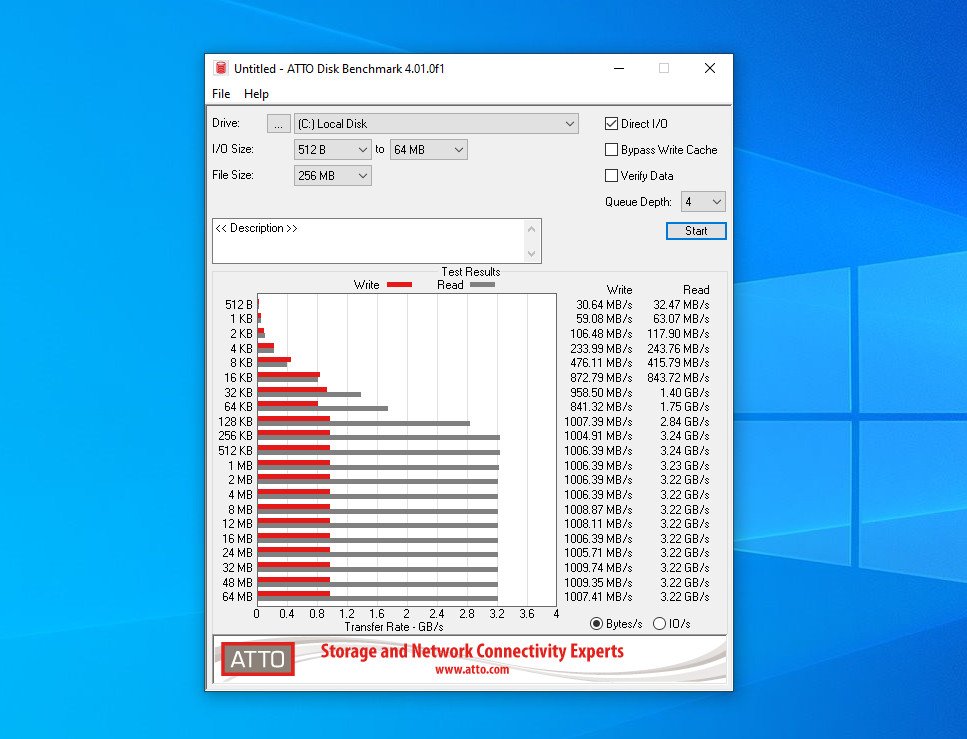
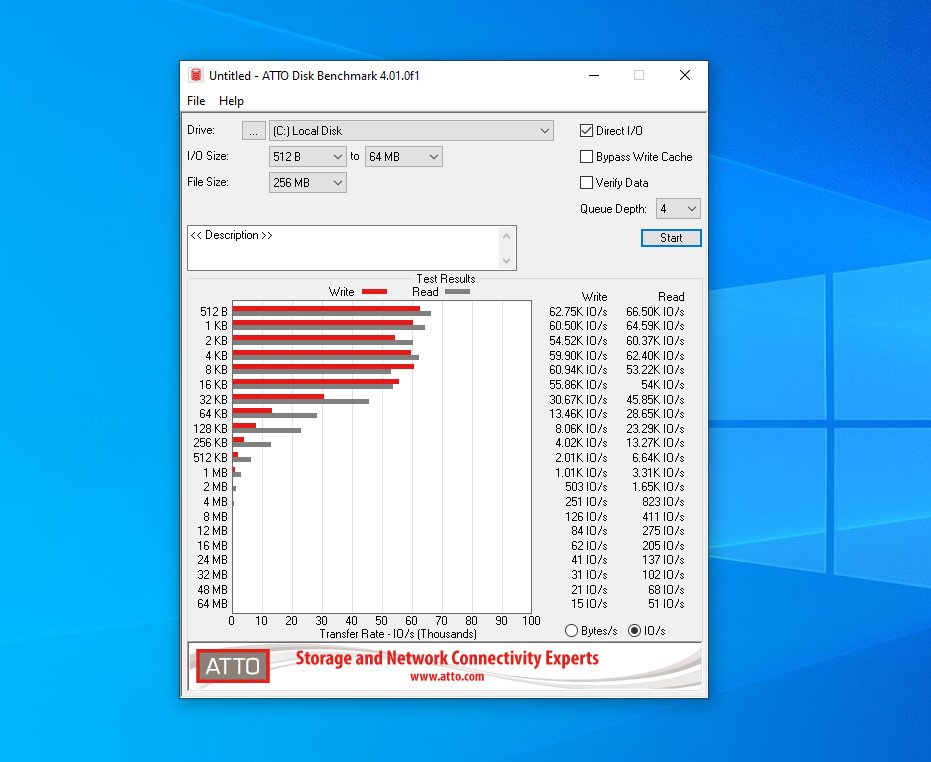
The ATTO Disk Benchmark also shows a similarly pleasing set of results, with consistent read and write speeds as file sizes increase. If you do a lot of large file writing, video editing for example, then you may still benefit more from going with a brand like Samsung or Western Digital, but for general PC builds, laptop upgrades or gaming PCs, especially those on a budget, the Rocket is an ideal SSD to house your Windows installation and most used applications.
A couple of negatives
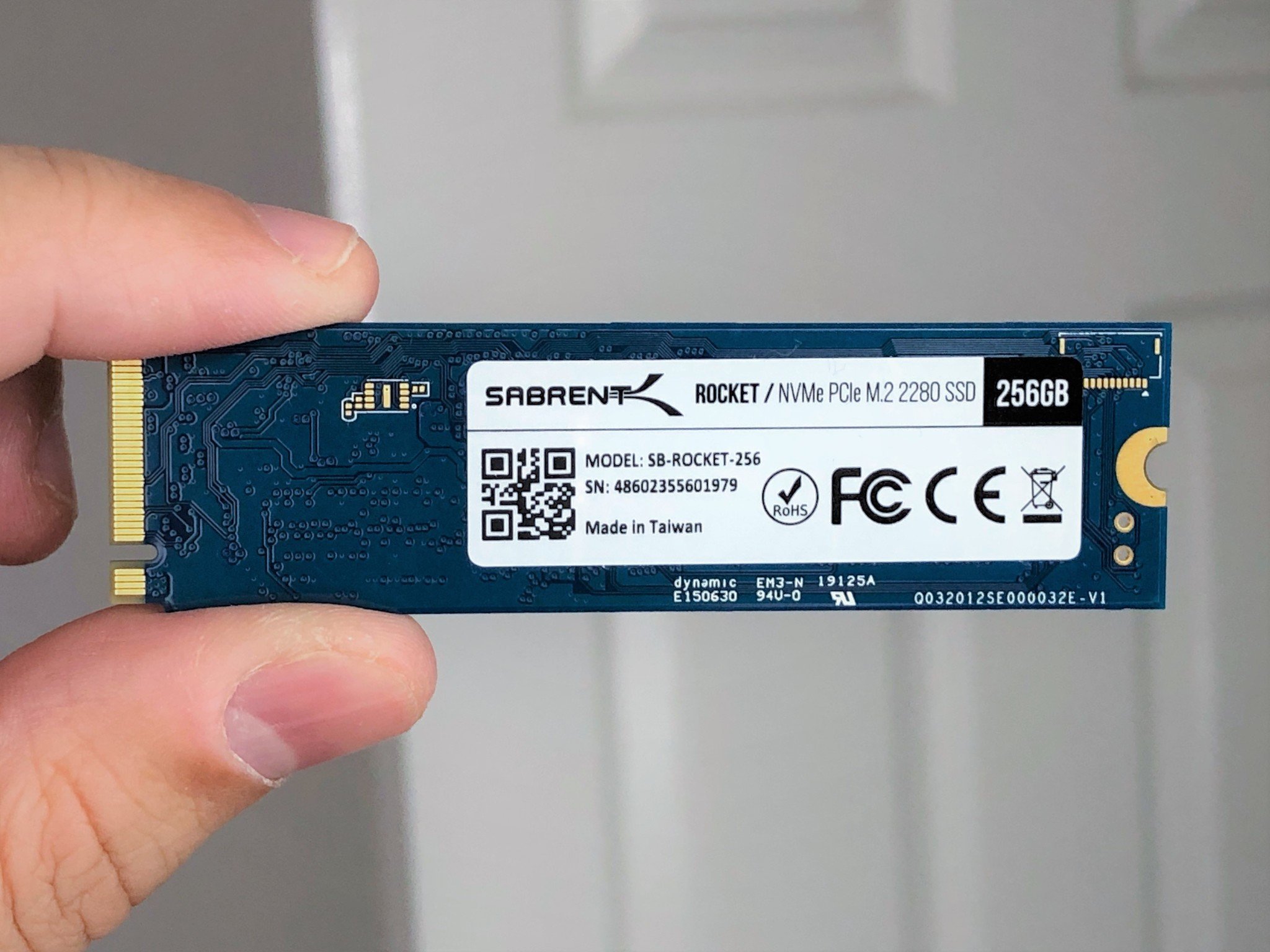
There's a lot to like about the Sabrent Rocket, but there are some downers. The most obvious is how hampered the 256GB model is compared to the rest of the range. If all you need is something to boot Windows from and want to spend as little as possible, it's still an excellent choice. The performance is far beyond any affordable SATA SSD you'll find. But to get the very best of the bunch you need to get the 1TB model ideally.
Even the 512GB model has significantly better specs than the entry-level version. That's disappointing, and while performance differences on lower capacities aren't exactly uncommon, the disparity here between the different size Rockets is disappointing.
Cloning to one of these has additional steps thanks to a lack of 512-byte emulation
The other, less obvious thing to consider is if you're going to be cloning an existing drive to this one. It's a bit of a pain. It uses 4k sectors and has no 512-byte emulation built-in, which means that without the right software you just flat out can't clone to this drive. Initially, that appeared to be more of an issue as it is now since Sabrent has since released a utility that allows you to reformat the drive and choose the size of the sectors.
But it's not made very obvious this tool even exists, and anything that makes a process longer isn't going to win fans. If you're doing a clean install of Windows, there's absolutely no drama. It works just like any other drive.
Should you buy the Sabrent Rocket?
If good quality storage at an affordable price sounds good to you, then absolutely get the Sabrent Rocket. The 512GB model at $60 is probably the best for most people, with a good balance of price and performance.
The 256GB model at just $40 is still far beyond the performance you'll get from any SATA SSD, and so even if you're simply looking to spend as little as possible, it's a decent buy.
The write speed on the cheapest version is disappointing, though, and if you intend to clone to your Rocket, you have to jump through some extra hoops. But even with this in mind, this is one of the best affordable NVMe SSDs you can find.

Richard Devine is a Managing Editor at Windows Central with over a decade of experience. A former Project Manager and long-term tech addict, he joined Mobile Nations in 2011 and has been found on Android Central and iMore as well as Windows Central. Currently, you'll find him steering the site's coverage of all manner of PC hardware and reviews. Find him on Mastodon at mstdn.social/@richdevine
